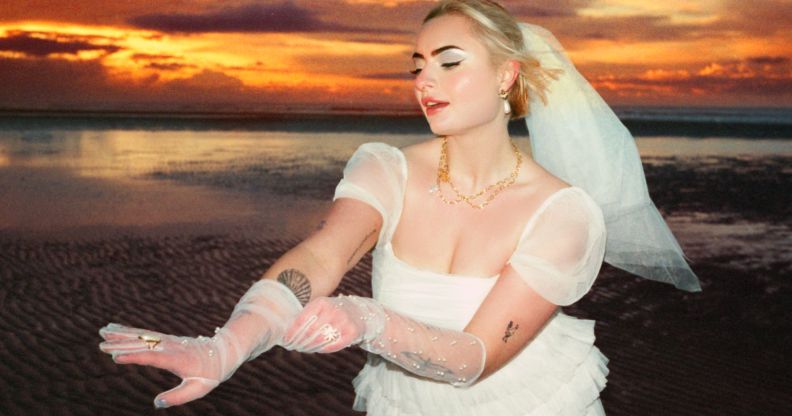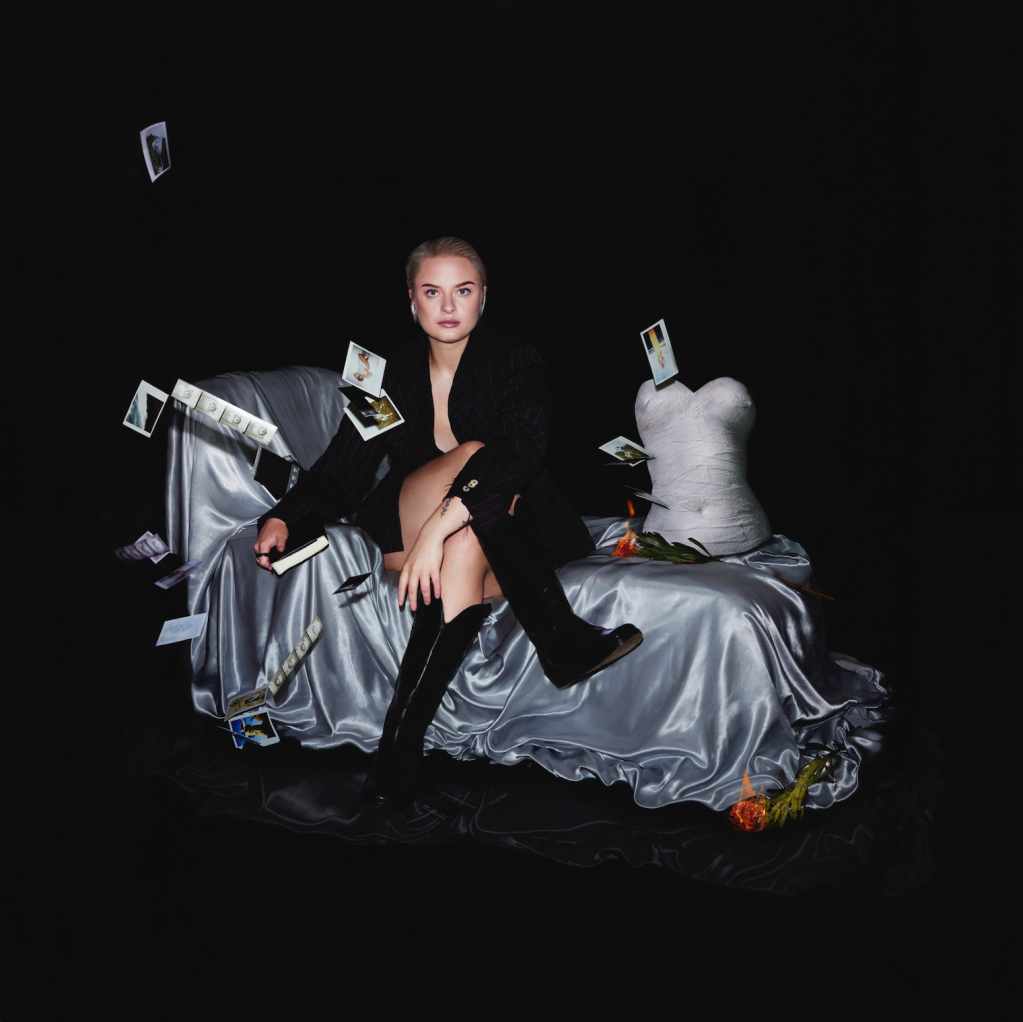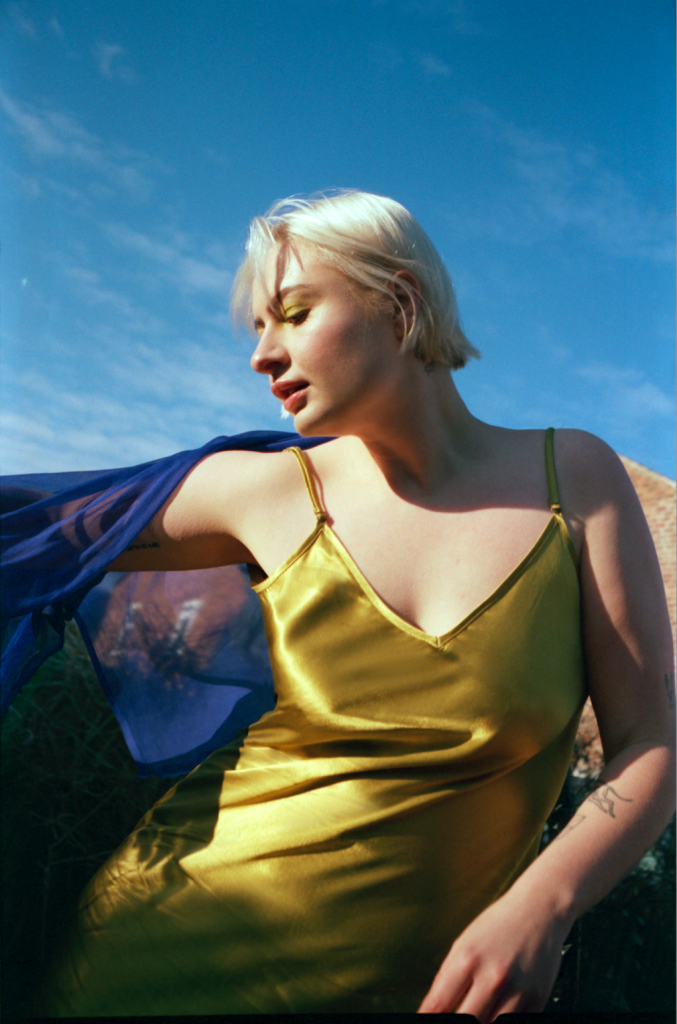‘I’m not some angel’: Låpsley on letting go of shame and loving pop’s queer women

Låpsley talks new music, going to therapy, and queer women taking over pop music. (Supplied)
Singer-songwriter Låpsley is something of a shapeshifter. In 2014, aged 17, she started out as a ballsy, avant-pop starlet, with the release of broody, sparse debut single “Station”.
In the years since, she’s veered into disco (2016’s “Operator”), straight-up electronica (2022’s “Like I Used To”), and more palatable alt-pop (her most recent album, last year’s Cautionary Tales of Youth).
Away from her music too, the star, real name Holly Lapsley Fletcher, has dabbled in many lives. After her second world tour and an intense period of introspection, she took a year off to become a doula – providing medical care for pregnant women.
In 2022, she graduated from London university Goldsmiths with a degree in politics, philosophy and economics. Now 27, a lot of her time is spent writing sings for other artists. She’s worked with LGBTQ+ youth groups and is a keen sailer. When we speak, she’s calling on Zoom from Mexico, where she’s enjoying a spot of surfing.
Ten years on from her debut, and she’s coming full circle. She’s gearing up for the May release of a new EP, A Guilty Heart Can Never Rest: a collection of gritty, bristling songs which she says marks a “transitional process” from her early to late twenties.
The minimal production of her first single is replaced by bass and searing vocals, but lyrically it’s some of the most “honest” work since her debut, she believes.

“I found it very easy to write about what was going on in my head when I was a teenager because it was so poignant, and every feeling is quite intense,” she says. “So, I’m almost back to that place where I’m allowing myself to feel those feelings, but now I can notice them and I can name them and I can categorise them.”
Being able to notice and name feelings includes recognising when she’s been “the bad friend, or the bad partner” in a situation, understanding why she’s done what she has done, and working to “accept the entirety” of herself.
On “4AM Ascension Day”, the lead single from the new EP, Låpsley laments long nights lying awake, tortured by guilt and regret with “alarm bells thumping” in her chest.
“I’m not some angel, I’ve really hurt people in the past,” she says candidly, suggesting that infidelity on her part was the inspiration for the track.
“Honesty is at the centre of my work. I’m not going to [sugar-coat] or glamorise cheating on someone because it’s a horrible thing, but a massive part of my journey of forgiving myself, and building a better life for myself, has been having to open that door fully.”
It’s been little more than a year since Cautionary Tales of Youth went on sale, yet the fairly speedy release of the upcoming EP is the result of Låpsley wanting to “show everyone the progress I’ve made with my therapist.” That means, in addition to touching on her “darker sides”, she’s been writing to make peace with places that are triggering for her.
Second single “Angeles” is a drum and bass-tinged reflection on her “really difficult” relationship with Los Angeles. Despite growing up in English town of Southport, on Merseyside, she was shipped to LA by her record label as a teenager to work on music. Now, she’s there often when writing for other artists.
It’s a place that makes her feel “lonely” and “materialistic”. There are aspects of LA that she now notices, as an adult, that have made her feel “worse as a person”.
She’s been writing music to understand what she’s experienced there. “I’ve been trying to tackle all these places that maybe have traumatic memories, and try to think about how I can renew my relationship with them,” she explains.

Although she’s not LA’s biggest fan, her home town hasn’t always been her happy place, either.
In 2020, in those months of the first COVID-19 lockdown, she came out as bisexual.
“My sexuality is something I have struggled with understanding and accepting since I was a teenager,” she wrote on Instagram, “and, through a mixture of teenage trauma, the local culture and moments of bullying, I associated anything to do with my sexual behaviour and sexual identity as being shameful.”
The location of the post was tagged as Birkdale, Southport.
She went to an all-girls secondary school in the late 2000s, just a few years after the repeal Margaret Thatcher’s reviled Section 28, which banned discussion of homosexuality in schools, was wiped from the statute books. But its legacy held strong.
“I had two female PE [physical education] teachers who were lesbians but they weren’t out about it, and every time anyone would ask them something, they would shut it down,” she recalls. “All those early sexual experiences with women… everything was behind closed doors, and that breeds a level of shame.”
In the years since coming out, she’s tried to close those old wounds, be it through “healing” chats with school friends at the local pub, or heading back to the school a few years ago to talk to students about her career.
“That was really great,” she smiles. “Seeing those old PE teachers and them being much more open about their sexuality… I’m like: ‘Oh f**k, they were victims in this as well’.”
Inside school and out of it, queer women have formed a huge part of Låpsley’s identity and “confidence journey”. At 15, she connected with fellow British musician Shura, one of the first lesbians in pop music of whom she was aware.
“It’s mad because when I was a teenage girl, I never saw lesbian or bi women in popular culture. It was always like The L Word or it was seen as extreme, so adult,” she says.
Little over a decade later, and it’s all changed: we’re speaking just before Coachella, which had a line-up brimming with out queer women, including Reneé Rapp, Ice Spice and Chappell Roan.
“I think that’s so lovely, that it’s not an otherness,” Låpsley says. “The inclusivity that queer women in pop have given for today’s generation is beautiful, beyond anything I could imagine.”
A Guilty Heart Can Never Rest is released on 10 May.
How did this story make you feel?

